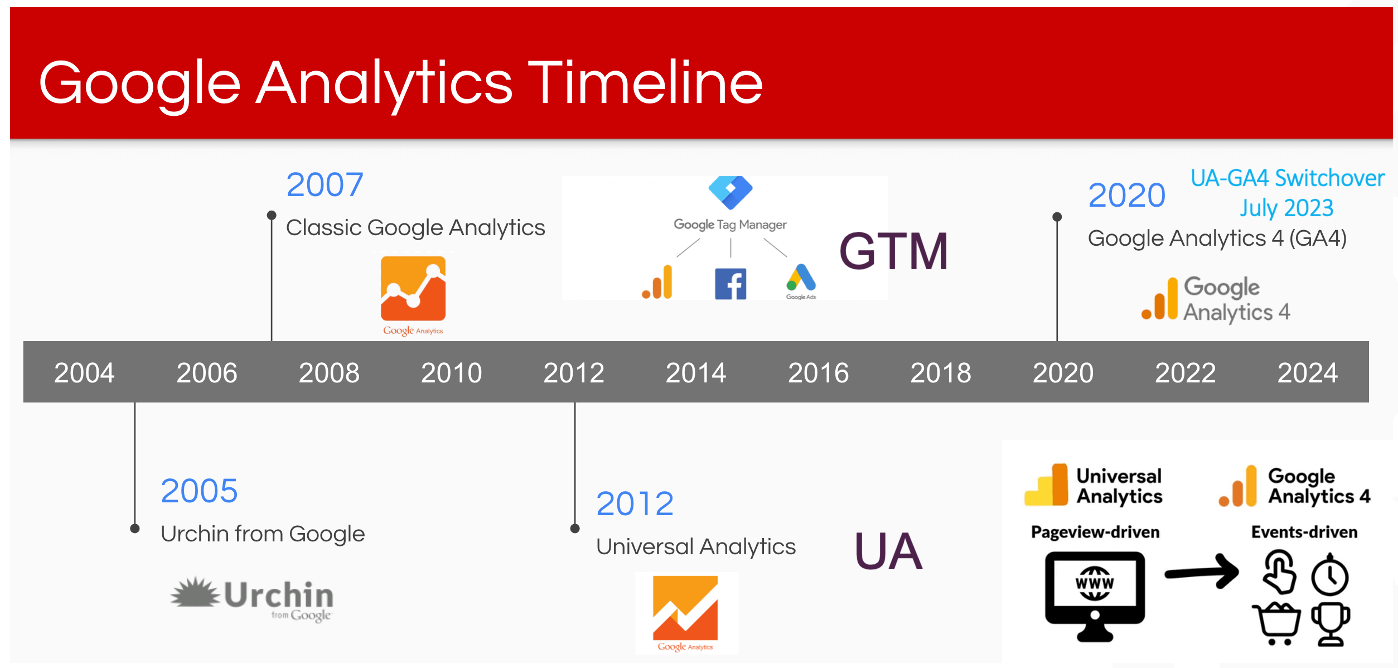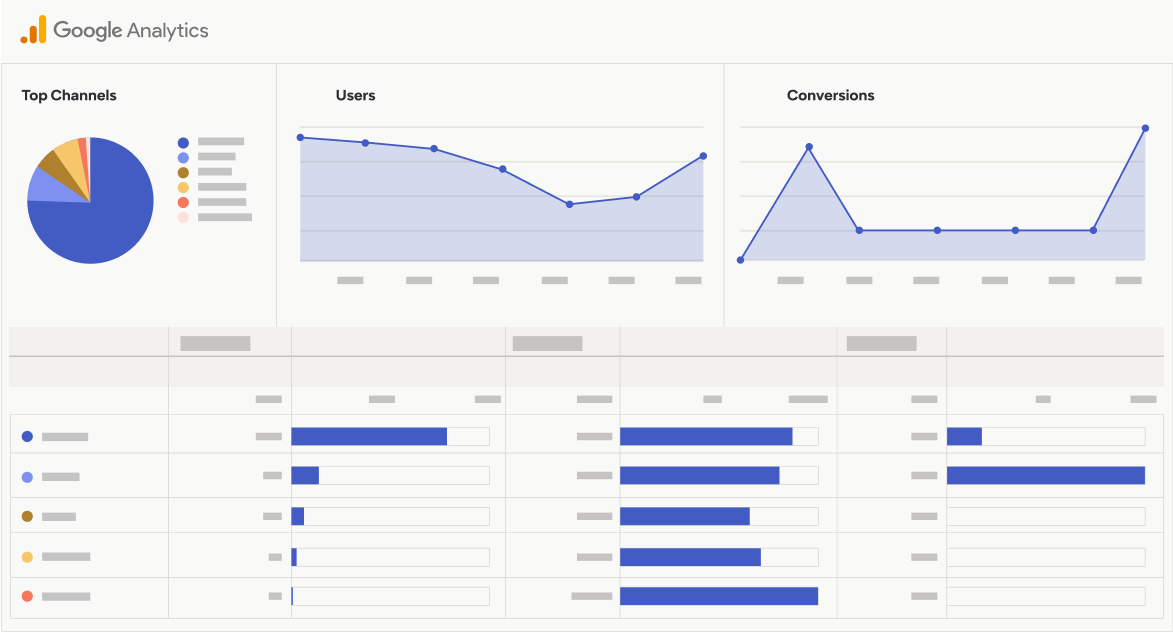Vital Insights on When Does the Google Analytics Tracking Code Send an Event Hit to Analytics for Accurate Reporting
Vital Insights on When Does the Google Analytics Tracking Code Send an Event Hit to Analytics for Accurate Reporting
Blog Article
Enhance Your Search Engine Optimization Method With Effective Google Analytics Monitoring Code
Including Google Analytics tracking code into your Search engine optimization strategy is a critical step towards attaining quantifiable results. What details approaches can you take on to make the most of the impact of this information on your SEO efforts?

Recognizing Google Analytics Fundamentals
To successfully leverage Google Analytics for SEO, it is necessary to grasp its foundational principles. Google Analytics acts as an effective tool for tracking and analyzing internet site web traffic, giving insights that are vital for enhancing online search engine performance. At its core, the platform enables users to monitor individual habits, traffic resources, and vital performance signs (KPIs) such as bounce rates and session periods.
Experience with the user interface is vital. The Target market section provides market insights, assisting to tailor material to target individuals properly.
Understanding metrics such as natural traffic quantities and conversion rates is crucial for evaluating search engine optimization performance. Eventually, understanding these basics enables digital marketing experts to harness the full potential of Google Analytics, driving informed choices that enhance total SEO techniques. By establishing a strong foundation, organizations can properly examine their performance and identify possibilities for renovation in their online presence.
Setting Up Tracking Code
Properly setting up the monitoring code is important for precise information collection in Google Analytics. The initial step includes producing a Google Analytics account and property, where you will certainly receive an one-of-a-kind monitoring ID. This ID is vital for connecting your internet site's information to your Google Analytics account.
As soon as you have your monitoring ID, incorporate the monitoring code fragment right into your web site's HTML. This is generally put in the header area of each page to ensure it loads early in the web page rendering process. If you're making use of a Material Management System (CMS) like WordPress, several plugins simplify this process, enabling you to add the tracking code without straight HTML modifying.
After implementing the tracking code, it is essential to check its functionality. If the monitoring code is correctly installed and working, you can use the Google Tag Assistant device to validate. In addition, monitor the real-time coverage feature in Google Analytics to confirm that information is being gathered properly.
Making sure that the monitoring code is appropriately established up lays the structure for effective information evaluation, allowing you to make educated choices to enhance your search engine optimization technique and overall web site performance.
Secret Metrics to Display
Identifying crucial metrics to check is important for recognizing the performance of your SEO strategy through Google Analytics. By focusing on certain information factors, you can assess the influence of your optimization efforts and make educated decisions to improve performance.
This metric reflects the overall wellness of your SEO technique. A high bounce rate may signal that your material is not fulfilling individual expectations or that your touchdown web pages require enhancement.
Additionally, consider tracking conversion prices, as these metrics disclose how well your site meets its company purposes, such as generating sales or leads. Search phrase positions are likewise vital; tracking changes in keyword settings aids assess the efficiency of your targeted search engine optimization initiatives. Lastly, analyze the average session period, which suggests customer interaction and material relevance. By very closely adhering to these essential metrics, you can gain important insights right into your search engine optimization approach's efficiency and identify locations for renovation.
Studying User Habits
Comprehending user behavior is essential for refining your SEO strategy and maximizing site efficiency. when does the google analytics tracking code send an event hit to analytics?. By assessing exactly how site visitors engage with your website, you can reveal important insights that educate your content and design choices. Google Analytics offers a riches of information on customer involvement metrics, such as bounce rates, time on site, and page sights per session. These metrics help determine which web pages resonate with your target market and which might require optimization.
Additionally, tracking individual circulation can reveal usual navigation paths, highlighting prospective bottlenecks or areas for improvement. Comprehending the demographics, interests, and geographic places of your site visitors allows for more customized content that speaks with their requirements. Making use of segmentation attributes in Google Analytics further enhances your capability to analyze individual actions by enabling you to compare various target market teams.
Additionally, checking conversion prices and user activities can give insights into the effectiveness of your calls to activity and general website layout. This holistic view of you could try this out individual habits is vital for making educated choices that boost user experience and drive greater involvement, ultimately adding to boosted SEO efficiency.
Leveraging Insights for Search Engine Optimization
Consistently leveraging insights obtained from individual habits evaluation can considerably enhance your search engine optimization initiatives. By using Google Analytics, you can determine crucial metrics such as bounce prices, session duration, and customer circulation, which expose exactly how site visitors communicate with your content. These insights allow you to identify locations requiring renovation, such as high exit web Home Page pages or underperforming key phrases.

Additionally, tracking organic traffic sources provides clearness on which channels are most effective, enabling you to allot sources tactically (when does the google analytics tracking code send an event hit to analytics?). By analyzing conversion prices along with web traffic information, you can determine which web pages drive actual organization outcomes, refining your search engine optimization method further
Including these understandings right into your content approach not only boosts presence however also promotes an extra user-centric approach. Ultimately, a data-driven search engine optimization approach informed by analytics not just boosts positions however additionally aligns your goals with customer expectations, resulting in sustained development and interaction.
Conclusion
Effective implementation of Google Analytics tracking code considerably boosts a search engine optimization technique by giving essential insights right into individual habits and traffic resources. Keeping track of key metrics such as organic web traffic, bounce rates, and conversion rates facilitates the identification of improvement areas. Furthermore, assessing customer demographics and involvement metrics permits an extra targeted content strategy. Eventually, leveraging these insights adds to improving search engine optimization initiatives, driving even more pertinent traffic, and improving total website performance.
Incorporating Google Analytics tracking why not check here code into your Search engine optimization strategy is a pivotal action towards achieving measurable results. At its core, the system makes it possible for individuals to keep an eye on user habits, website traffic resources, and crucial performance signs (KPIs) such as bounce rates and session durations.
Comprehending individual habits is critical for refining your SEO approach and maximizing site performance.Regularly leveraging understandings acquired from individual actions analysis can significantly boost your Search engine optimization initiatives.Reliable implementation of Google Analytics tracking code substantially enhances a SEO approach by providing critical understandings into individual behavior and website traffic resources.
Report this page